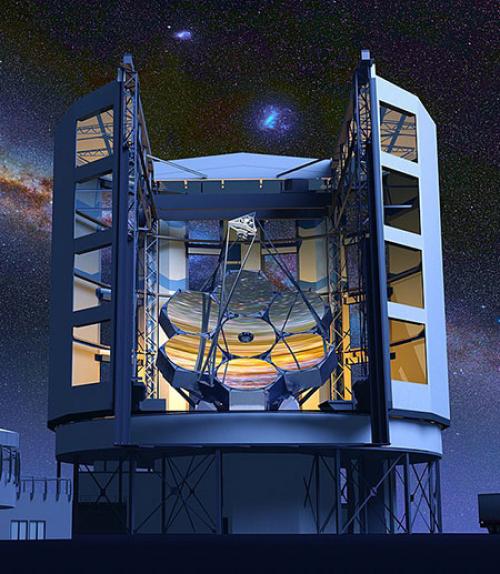Image: Artist's concept of the completed Giant Magellan Telescope.
Astronomer Nikole Lewis has been selected as co-convener of the Extrasolar Planetary Systems Key Science Program development for the US Extremely Large Telescope effort. She will co-lead a team of 75 astronomers in developing programs that highlight the scientific potential of these large telescopes for the study of exoplanetary systems.
Through the program, U.S. scientists will have access to extremely large telescopes in both the northern and southern hemispheres, offering greater and more diverse research opportunities than can be achieved with a single telescope. Research targets by Lewis’ team include the properties and evolution of exoplanets, debris disks, exobiology, and the search for life beyond the solar system.
Recent recommendations by the Exoplanet Science Strategies Committee, convened by the National Academies in preparation for the 2020 Decadal Survey, highlight the essential role that US Extremely Large Telescopes will play in exoplanet exploration.
“The new ground-based, extremely large optical-infrared telescopes, including the Giant Magellan Telescope and Thirty Meter Telescope, are opening new research frontiers in astronomy and astrophysics,” said Lewis, assistant professor of astronomy and deputy director of Cornell’s Carl Sagan Institute. “I’m excited to co-lead this project that will help answer questions like ‘how did we get here?’ and ‘are we alone?’




